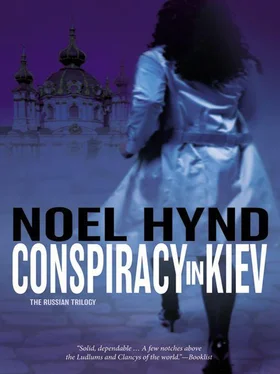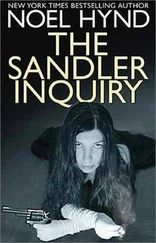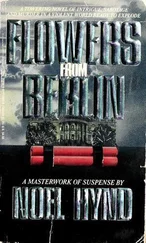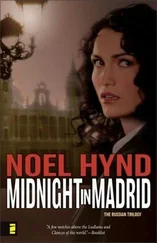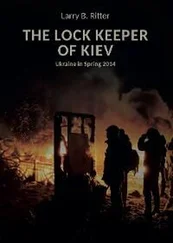Noel Hynd - Conspiracy in Kiev
Здесь есть возможность читать онлайн «Noel Hynd - Conspiracy in Kiev» весь текст электронной книги совершенно бесплатно (целиком полную версию без сокращений). В некоторых случаях можно слушать аудио, скачать через торрент в формате fb2 и присутствует краткое содержание. Жанр: Политический детектив, на английском языке. Описание произведения, (предисловие) а так же отзывы посетителей доступны на портале библиотеки ЛибКат.
- Название:Conspiracy in Kiev
- Автор:
- Жанр:
- Год:неизвестен
- ISBN:нет данных
- Рейтинг книги:5 / 5. Голосов: 1
-
Избранное:Добавить в избранное
- Отзывы:
-
Ваша оценка:
- 100
- 1
- 2
- 3
- 4
- 5
Conspiracy in Kiev: краткое содержание, описание и аннотация
Предлагаем к чтению аннотацию, описание, краткое содержание или предисловие (зависит от того, что написал сам автор книги «Conspiracy in Kiev»). Если вы не нашли необходимую информацию о книге — напишите в комментариях, мы постараемся отыскать её.
Conspiracy in Kiev — читать онлайн бесплатно полную книгу (весь текст) целиком
Ниже представлен текст книги, разбитый по страницам. Система сохранения места последней прочитанной страницы, позволяет с удобством читать онлайн бесплатно книгу «Conspiracy in Kiev», без необходимости каждый раз заново искать на чём Вы остановились. Поставьте закладку, и сможете в любой момент перейти на страницу, на которой закончили чтение.
Интервал:
Закладка:
Alex continued. Her father had died in an auto accident in the summer of 1993 when she was fourteen. While Alex settled into her faith and found solace there, her mother settled into an alcoholic depression. Alex buried herself in schoolwork. A year later, her mother’s health worsened. Alex went to Mexico for a year to live with an aunt and their family. Her fluency in Spanish gelled. “I read voraciously in two languages,” she said. “Histories. Biographies. Novellas. Journals about el beisbol or el futbol. Anything.”
She came back overprepared for her own school system, she explained. A local guidance counselor in California had ties to the East Coast. When her mother’s illness worsened, Alex was sent to a rigorous boarding school in Connecticut on full scholarship.
The school allowed her to excel. She branched from Spanish into French. She won a summer internship in Europe. Off she went to work in the rural Camargue region on a ranch in southern France, an area famous for prized bulls, wild ponies, and a pounding summer sun.
“You know what? I turned into a French cowgirl,” she said with a laugh. “And I loved every minute of it. The local people had a wonderfully unique culture. Distinctly Mediterranean. After six weeks, I came home and without even realizing it, I was fluent in a third language.”
“So where did the Italian come from?” Cerny asked.
“That was easy,” she said. “My dad was from Sicily, as I said. I wanted to know about his culture too. I started studying on my own, but since I knew Spanish and French and had had some Latin, it was very easy. I was lucky and won another summer internship the following year, this time in art history and Italian literature.”
Cerny laughed. “I’m not sure how ‘lucky’ that was,” he said. “Obviously you had a gift and studied hard.”
“What’s the old saying?” she asked, stumbling a little and trying to translate into Russian. “ ‘Luck is the confluence of hard work and opportunity?’ I spent three weeks in Rome and another three in Paris.”
She was fascinated at the time, she recalled, by the work of the Italian poet Dante, whose Divine Comedy consigned deathbed confessors to the first circle of Purgatory. She switched into Italian. “During life they made God wait for them. So after death, they must wait for God.”
Cerny blinked. She knew she had him. A personal first for Alex, switching from Russian to quote into sixteenth-century Italian.
Returning to Russian, she described how during her senior year at boarding school, she won a prestigious state university scholarship in California. It was a remarkable achievement, and yet she would always associate her senior year with tragedy. Two days after her eighteenth birthday, one week before graduation, her mother died.
The funeral was in Veracruz. She attended the funeral and missed her own graduation, which at the time barely seemed to matter. She was now on her own. She spent two years at the University of California at Berkeley where she was one of the more conservative students. It was a lonely stretch, by her own admission. She had many acquaintances but made few close friends. She joined a local Episcopal church, formally transferring from her old Methodist church. “It felt more comfortable,” she recalled, “almost as if it were midway between my father’s faith and my mom’s.”
Though she skipped over it here with Michael Cerny, as she entered her early twenties, Alex had transformed from a cute but shy teenage girl into an attractive young woman. She had attained her adult height of five foot seven, but all the sports and training through the years had given her a strong, lean but feminine body. And she had acquired an ample amount of self-confidence and self-assurance to go with it.
She had her mother’s dark Spanish eyes and brown hair. She dated occasionally but there was never anything serious. She tried smoking but quit quickly. She dabbled in liquor but kept it in moderation. She tried pot once at a party and didn’t care for it or its foggy-headed lifestyle. So she never touched weed again or any harder drugs, either, but she had acquaintances who dabbled in both.
She supported herself through work-study jobs and her scholarship. She played soccer for the freshman women’s team at Berkeley and ran track. After two years, she transferred to UCLA. She selected an undergraduate major in business and finance and found herself surrounded by a coterie of unusual friends. Many students were foreign, Asian and European. Many were American.
Her political views came more into focus at this time too. She disliked the right when it became intolerant and bigoted. She disliked the left when it strayed into cuckooland. She liked to think she was of the reasonable center, able to listen to an argument from either side and make her own judgments accordingly.
At this time, she was also finding that her abilities in language combined with a business major were opening doors for her, not the least of which was even more financial aid for her academics.
“When I was at UCLA,” she said, “I started Russian, then accelerated my study by taking a summer semester in Moscow. It was an exciting place to be, during the Gorbachev era, perestroika, and all that.”
Cerny nodded. “Have any Russian boyfriends?” he asked.
“Is that any of your business?”
“No. Just curious.”
“An American girl in Moscow who spoke Russian?” She laughed. “I got a lot of offers,” she said, “but didn’t accept very many of them. Too much vodka, , too many late nights at the Cafe Pushkin after going to the clubs, can interfere with a girl’s studies.”
He raised an eyebrow in mild disbelief. “Sure,” he said. Then he moved on.
The following summer, she worked in New York for a big time entrepreneur named Joseph Collins. She worked in his international finance section. Her work was so diligent that he took personal note of her. Collins promised her a job after university, if she was interested.
She switched her course of study to a five-year program that led to a master’s. By the time the University of California awarded her an MA, she was fluent in five languages, had a thorough understanding of modern European politics, art, and history, and had a master’s degree in finance.
After UCLA she turned down an offer to return to New York and work for Joseph Collins, who was expanding his business in Latin America. Instead, she wanted to stay in California. She worked for Wells Fargo for eighteen months in one of their international divisions, overseeing hipotecas -mortgages-in the Latin community.
She used her Spanish daily.
“I was bored stiff,” she said. “But I stumbled across a few cases of bank fraud in the mortgage division. So I grew interested in law enforcement. I applied for a job with the FBI.”
“And they hired you,” Cerny said.
“About two weeks later,” she said. “I filled an immediate need.”
The FBI sent her to their academy in Virginia. She excelled at all aspects of her training, from the book-learning to firearms to the bone-crunching unarmed combat.
She advanced quickly. Her linguistic skills were of immense value. She was assigned to Internet rackets and bank frauds in her first years, initially working out of the Newark, New Jersey, office, then moving around the country on a case-to-case basis.
She was socially traditional as an adult, which meant she didn’t have affairs all over the place, same as she had been as a student. But she liked looking good. She wore sharp suits, blouses and skirts that appealed to men. She worked hard at the gym to maintain a good physique. So her clothes flattered her, and she chose them carefully, same as the men she went out with.
In recounting this part of her life to her interviewer, small scenes in her past played out in her mind. She had realized as an adult that her late father had had his quirks. He had not been a faithful churchgoer but he had been a believer nonetheless. At Alex’s twelfth birthday, her father had given her the small gold cross on a delicate gold chain that she continued to wear around her neck. It was the only thing of substance that he had given her that she still owned. As jewelry went, it was modest, more meaningful in what it represented than its actual monetary worth. But she had worn it now for almost eighteen years.
Читать дальшеИнтервал:
Закладка:
Похожие книги на «Conspiracy in Kiev»
Представляем Вашему вниманию похожие книги на «Conspiracy in Kiev» списком для выбора. Мы отобрали схожую по названию и смыслу литературу в надежде предоставить читателям больше вариантов отыскать новые, интересные, ещё непрочитанные произведения.
Обсуждение, отзывы о книге «Conspiracy in Kiev» и просто собственные мнения читателей. Оставьте ваши комментарии, напишите, что Вы думаете о произведении, его смысле или главных героях. Укажите что конкретно понравилось, а что нет, и почему Вы так считаете.
